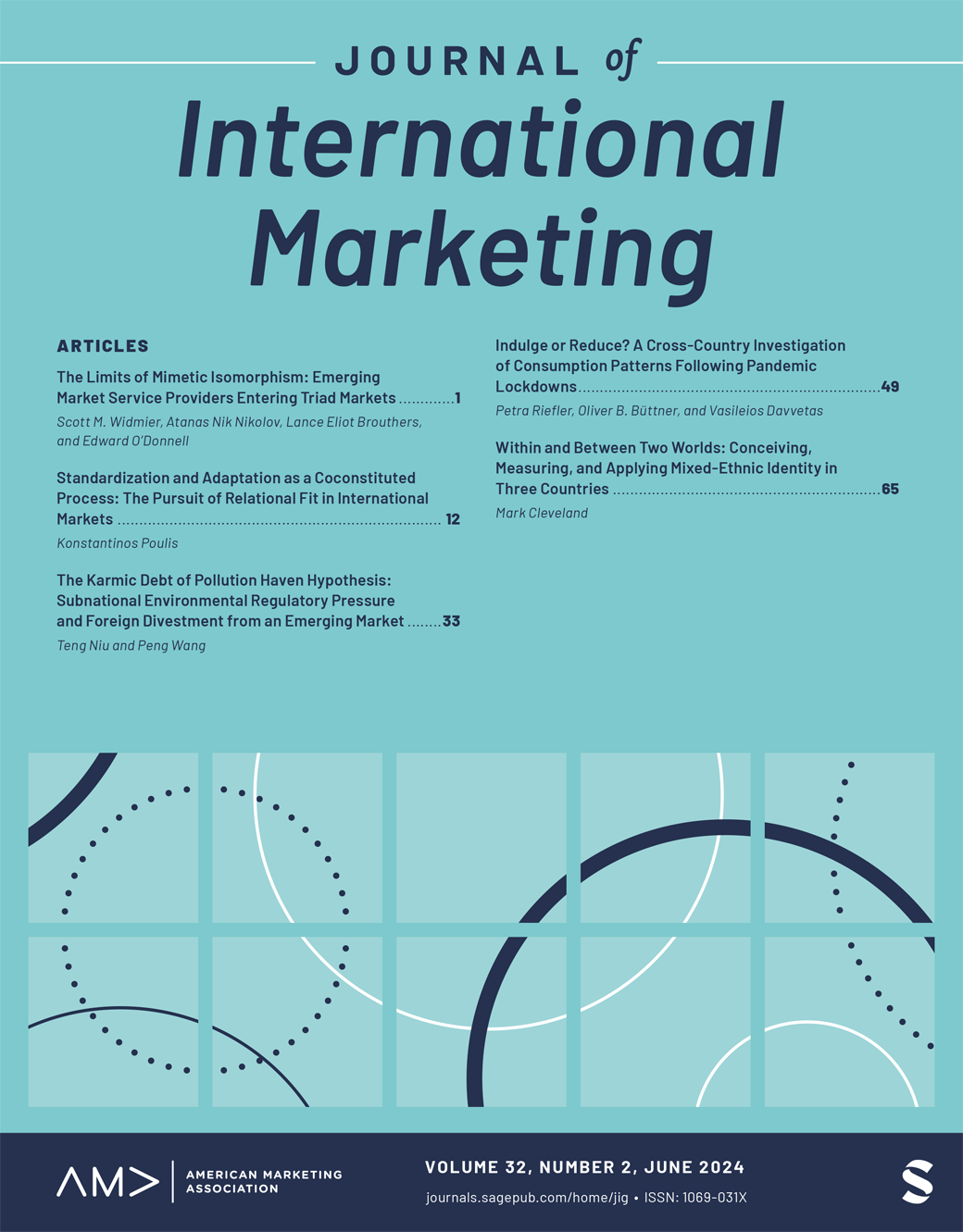全球营销理论与实践特刊导论
IF 4.2
2区 管理学
Q1 BUSINESS
引用次数: 1
摘要
市场营销学是一门应用科学,其根源在于定义、理解、解释和优化商业世界中观察到的现象。目前,技术的巨大进步正在改变消费者和企业的行为。这些变化产生了许多实质性问题,需要营销学者进行仔细审查和认真调查,以帮助企业和政策制定者理解和调整他们的政策。这些变化的近期和持续需要管理者和学术学者的合作——前者是因为他们能够获得最新的数据和挑战,后者是因为他们有工具和时间来分析这些数据,并为联合讨论提供新的见解。尽管这些变化增加了实践与学术界合作的必要性,但在更长的时间内,人们一直观察到相反的情况。Gupta等人(2014)断言,学术界可能正在远离解决工业的实质性问题,这可能会破坏商学院研究的合法性。2011年,Bernd Schmitt、Don Lehmann和Sunil Gupta发起了“营销理论与实践(TPM)”系列会议,以确保营销科学再次加强与实践的关系。在最近一期关于TPM的《市场营销杂志》特刊中,Hoffman等人(2022)表示希望这些特刊继续激励学者应对未来重要的研究挑战。本文章由计算机程序翻译,如有差异,请以英文原文为准。
Introduction to the Special Issue on Theory and Practice in Global Marketing (TPGM)
Marketing science is an applied science with roots in defining, understanding, explaining, and optimizing phenomena observed in the business world. Currently, substantial technological advances are changing the behavior of consumers and businesses alike. Many substantive issues arise from these changes that require scrutiny and serious investigation from marketing academics to help businesses and policy makers understand and adapt their policies. The recency and continuation of these changes require the cooperation of managers and academic scholars—the former because of their access to latest data and challenges, and the latter because they have the tools and time to analyze these data and to provide new insights for joint discussion. Although these changes increase the need for the cooperation between practice and academia, the opposite has been observed for a longer period. Gupta et al. (2014) assert that academia may be moving away from addressing substantive problems of industry, which threatens to undermine the legitimacy of research at business schools. In 2011, Bernd Schmitt, Don Lehmann, and Sunil Gupta initiated the “Theory and Practice in Marketing (TPM)” conference series to ensure that marketing science intensifies its relationship with practice again. In a recent Journal of Marketing special issue on TPM, Hoffman et al. (2022) express hope that these special issues continue to inspire scholars to take on future research challenges that matter to practice.
求助全文
通过发布文献求助,成功后即可免费获取论文全文。
去求助
来源期刊

Journal of International Marketing
BUSINESS-
CiteScore
8.70
自引率
17.20%
发文量
28
期刊介绍:
As the globalization of markets continues at a rapid pace, business practitioners and educators alike face the challenge of staying current with the developments. Marketing managers require a source of new information and insights on international business events. International marketing educators require a forum for disseminating their thoughts and research findings. Journal of International Marketing(JIM) is an international, peer-reviewed journal dedicated to advancing international marketing practice, research, and theory. Contributions addressing any aspect of international marketing management are published each quarter.
 求助内容:
求助内容: 应助结果提醒方式:
应助结果提醒方式:


